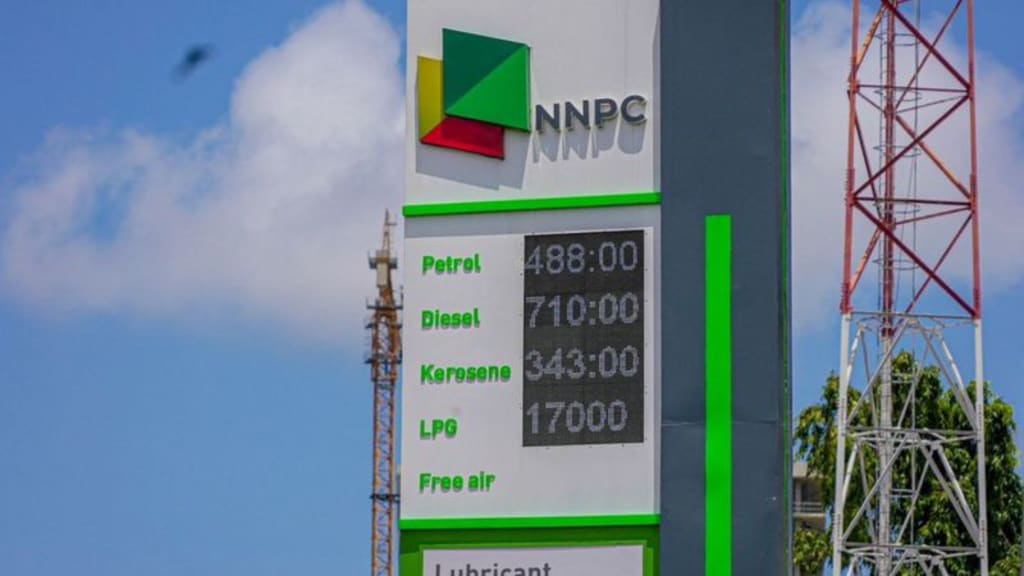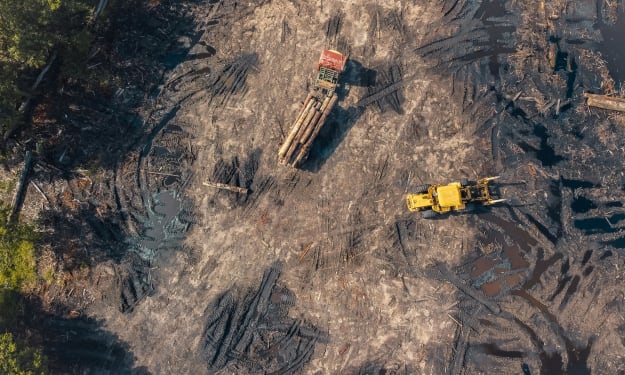Fuel Scarcity in Nigeria: An Incessant Struggle for Energy Stability
Subtitle: Unveiling the Causes, Impacts, and Strategies to Overcome Nigeria's Ongoing Fuel Crisis

Introduction:
Nigeria, Africa's most populous nation, has been grappling with a chronic issue of fuel scarcity for decades. Despite being a major oil producer, the country's inadequate refining capacity and dependence on fuel imports have created a recurring cycle of shortages, long queues at petrol stations, and a burden on the economy and citizens alike. This article examines the root causes behind Nigeria's fuel scarcity, explores the dire consequences it has on various sectors, and suggests potential strategies to alleviate this persistent crisis.
Causes of Fuel Scarcity:
Insufficient Refining Capacity: Nigeria's domestic refining capacity has long been inadequate to meet the nation's growing energy demands. The existing refineries suffer from outdated infrastructure, lack of maintenance, and frequent breakdowns, resulting in reduced output and reliance on fuel imports. The underutilization of these refineries forces Nigeria to rely heavily on imports to bridge the supply gap, making the country vulnerable to global oil price fluctuations and supply disruptions.
Corruption and Mismanagement: Corruption and mismanagement have plagued Nigeria's oil and gas sector, hindering the development of new refineries and obstructing efforts to address fuel scarcity effectively. This systemic issue has allowed corrupt practices, such as fuel smuggling and diversion, to thrive, exacerbating the scarcity problem. Bribes, kickbacks, and fraudulent activities within the sector have hindered the necessary investments in infrastructure and technological upgrades, perpetuating the fuel scarcity crisis.
Inconsistent Policies and Subsidies: Inconsistent government policies and subsidies have contributed to the fuel scarcity crisis. Frequent changes in pricing mechanisms, subsidy removals, and delays in payment to fuel marketers create uncertainty in the market, leading to hoarding and limited supply. Moreover, subsidies intended to cushion the impact of higher fuel prices on the citizens have been prone to abuse and corruption, further exacerbating the scarcity problem.
Security Challenges: Nigeria's security challenges, including pipeline vandalism, oil theft, and attacks on oil infrastructure, pose significant hurdles in ensuring a steady supply of fuel. These criminal activities disrupt the transportation and distribution of petroleum products, leading to shortages and exacerbating the fuel scarcity crisis.
Impacts of Fuel Scarcity:
Economic Consequences: The persistent fuel scarcity in Nigeria has severe economic repercussions. Industries and businesses suffer from disrupted operations, transportation costs escalate, and productivity declines. Small-scale businesses, which form the backbone of Nigeria's economy, are particularly vulnerable, leading to unemployment and decreased economic growth. Additionally, foreign direct investment may be discouraged due to the unreliable fuel supply, hindering Nigeria's overall economic development.
Social Disruptions: Fuel scarcity affects the daily lives of Nigerians, causing immense hardships. Citizens are forced to spend long hours queuing at petrol stations, often leading to frayed tempers and public unrest. The time spent in queues translates into lost productivity and affects personal well-being. Essential services such as healthcare, education, and emergency response are also severely impacted, compromising the well-being of the population.
Environmental Concerns: Fuel scarcity exacerbates environmental challenges. Extended periods of fuel shortages result in increased reliance on diesel generators, contributing to air pollution and exacerbating climate change. Moreover, the black market for fuel often leads to the sale of adulterated and low-quality petroleum products, posing health hazards and environmental degradation. Spillage from vandalized pipelines and oil theft further pollute the environment and damage ecosystems.
National Security Implications: The fuel scarcity crisis in Nigeria has national security implications. Scarcity-driven black market activities create opportunities for criminal syndicates and insurgent groups to fund their operations. The insecurity surrounding fuel distribution networks and infrastructure not only hampers economic activities but also undermines the stability and safety of communities.
Strategies to Overcome Fuel Scarcity:
Investment in Refining Infrastructure: Nigeria must prioritize the modernization and expansion of its refining facilities. Encouraging both domestic and foreign investments in refining capacity will help reduce import dependency and ensure a steady supply of fuel. Rehabilitation and upgrade of existing refineries, as well as the construction of new refineries, will enhance the country's self-sufficiency in fuel production.
Anti-Corruption Measures: Tackling corruption and improving governance within the oil and gas sector is crucial. Strengthening regulatory frameworks, enhancing transparency, and prosecuting those involved in corrupt practices will help curb fuel smuggling and diversion. The establishment of effective monitoring systems, digitalization of processes, and public awareness campaigns can contribute to reducing corruption and promoting accountability.
Diversification of Energy Sources: Promoting alternative energy sources, such as renewable energy and natural gas, can alleviate the pressure on fuel supply. Investing in solar, wind, and hydroelectric power projects will reduce dependence on fossil fuels and enhance energy security. Encouraging the use of compressed natural gas (CNG) as a transportation fuel can also help reduce the demand for petroleum products.
Policy Stability and Efficiency: The government must establish consistent and effective policies that foster a conducive business environment for fuel marketers. Ensuring prompt payment of subsidies, eliminating subsidy arrears, and streamlining pricing mechanisms will enhance market stability and discourage hoarding. Regular engagement with stakeholders, including fuel marketers, industry experts, and consumer representatives, can help inform policy decisions and ensure their effective implementation.
Conclusion:
Fuel scarcity remains a persistent challenge in Nigeria, hindering economic progress, disrupting daily life, and damaging the environment. Addressing the root causes of this crisis, including insufficient refining capacity, corruption and mismanagement, inconsistent policies, and security challenges, requires a comprehensive approach. By investing in refining infrastructure, implementing anti-corruption measures, diversifying energy sources, and ensuring policy stability, Nigeria can strive towards overcoming the fuel scarcity crisis. The collective efforts of the government, industry stakeholders, and citizens are crucial in building a resilient and sustainable energy system that can provide Nigerians with reliable access to fuel and drive the nation's socio-economic growth.
About the Creator
Enjoyed the story? Support the Creator.
Subscribe for free to receive all their stories in your feed. You could also pledge your support or give them a one-off tip, letting them know you appreciate their work.






Comments (1)
Educative